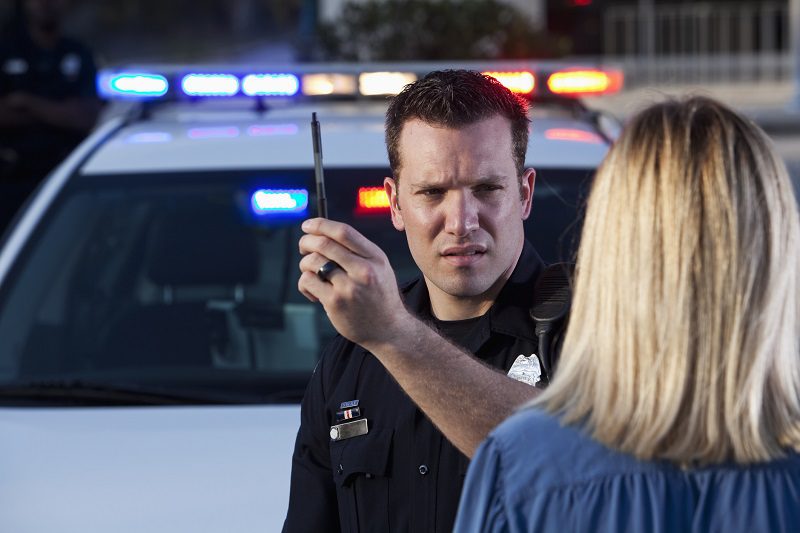Latest Supreme Court ruling may reduce liability risk due to impaired drivers

Canada’s top court has restored the impaired driving conviction of an Ontario ATV driver, whose Charter rights were violated when the police pulled him over on a shared private driveway instead of a public highway.
The case is of interest to auto insurers since the top court’s ruling essentially decreases the risk of liability for accidents or damage caused by impaired drivers.
Released last week, the Supreme Court of Canada ruling overturned the June 2021 decision of the Ontario Court of Appeal, which found police did not have the legal authority to charge the intoxicated ATV driver under the Highway Traffic Act, because they’d pulled him over on a private drive, not the highway.
In a dissenting opinion from the Ontario Court of Appeal’s 2-1 majority decision, Ontario Appeal Court Justice William Hourigan would have restored the ATV driver’s conviction. He expressed concern the majority ruling to acquit would result in impaired drivers having a ‘sanctuary’ if they pulled off the highway and onto private property to evade police charges for drunk driving.
“This [private] property need not be a place to which [drivers] have any connection or even a legal right to visit,” Hourigan wrote in his dissent. “It matters not that a police officer wished to conduct the random stop on a public highway. As long as the driver gets their vehicle onto a stretch of private property, sanctuary applies, and they are ‘home free.’”
The Supreme Court ultimately disagreed with this dissenting position, even while it agreed with the Ontario Appeal Court that the ATV driver’s Charter rights were violated. In fact, Canada’s high court found police did not have authority under the Highway Traffic Act to make the charges.
However, given the seriousness of the crime, the infringement of the ATV driver’s Charter rights had to be balanced against the fact that restoring the conviction would not bring the administration of the justice system into disrepute, the top court found.
“Every year, drunk driving leaves a terrible trail of death, injury, heartbreak and destruction,” the Supreme Court of Canada ruled. “From the point of view of numbers alone, it has a far greater impact on Canadian society than any other crime. In terms of the deaths and serious injuries resulting in hospitalization, drunk driving is clearly the crime which causes the most significant social loss to the country.
“In light of the reliability and importance of the [police] evidence, as well as the seriousness of the alleged offence [against the ATV driver],” the Supreme Court concluded, “admission of the evidence in this case would better serve the truth-seeking function of the criminal trial process and would not damage the long-term repute of the justice system.”
The case
In R. v. MColman, two Ontario Provincial Police officers spotted an all-terrain vehicle parked outside a convenience store near Thessalon, east of Sault Ste. Marie, in March 2016. Walker McColman, the ATV driver, drove away and was followed by police.
McColman stopped on a private driveway and admitted to police that he had been drinking and may have consumed up to 10 beers. None of the court decisions suggest McColman deliberately pulled off onto a private road to avoid police. McColman was arrested, tried, and initially convicted of a criminal offence of operating a motor vehicle with a blood alcohol level exceeding 0.08%.
“At the police station, the breathalyzer test was delayed because Mr. McColman vomited due to his alcohol consumption,” the Supreme Court found. “A police officer eventually conducted two breathalyzer tests, which recorded his blood alcohol concentration level as 120 and 110 milligrams of alcohol in 100 millilitres of blood.”
McColman was initially sentenced in 2018 to a $1,000 fine plus a $300 victim surcharge and a 12-month driving prohibition. But in 2019, the Ontario Summary Conviction Appeal Court overturned McColman’s conviction, finding that the police had no authority to stop the driver on a shared driveway that was not a public highway. The Ontario Court of Appeal upheld this ruling in a split 2-1 decision.
The Crown raised similar concerns as Hourigan before the Supreme Court, arguing that police officers formed the intent to pull over McColman on the public highway. The fact that they did not created a kind of ‘sanctuary’ for drivers to pull over onto private roads to evade police charges for drunk driving.
Not so, the Supreme Court of Canada ruled.
“Random sobriety stops are not the only tool available to police to combat impaired driving,” the Supreme Court ruled. “While police officers may not conduct random sobriety stops of drivers on private property pursuant to s. 48(1) of the [Highway Traffic Act], they may stop drivers if they have reasonable and probable grounds…
“This judgment does not constitute a blanket ban on police stops of drivers on private property. Various factual scenarios might give rise to reasonable and probable grounds. For example, if a driver is driving erratically, a police officer may have reasonable and probable grounds to pursue the driver onto private property.
“In addition, as the majority at the Court of Appeal noted, a ‘true case of flight might well contribute to reasonable grounds to detain the accused, depending on the circumstances.’ Thus, police officers are not barred from stopping drivers on private property in all circumstances.”
With files from Greg Meckbach. Feature image courtesy of iStock.com/kali9

